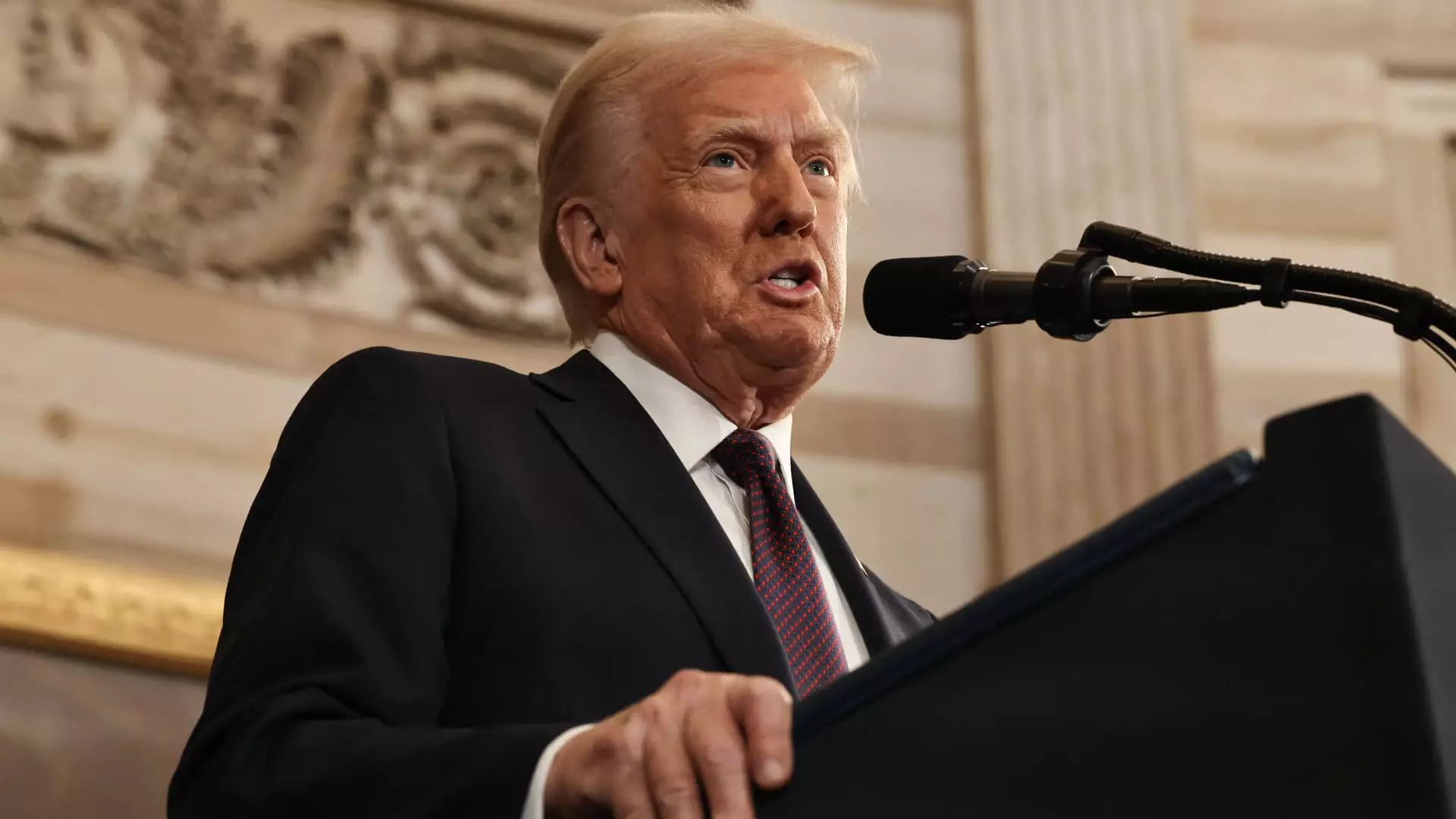In a political climate that seems perpetually charged and fractured, the expectation for a leader to emerge as a unifier is greater than ever. Five months ago, President Donald Trump stood at the helm, proudly proclaiming his vision to reshape America, operating as a “peacemaker” and a “unifier.” Such rhetoric provided a glimmer of hope, suggesting that perhaps the political landscape could transition from divisions wrought by animosity to a more harmonious existence. However, as recent events unfold—a military strike on Iran targeting its nuclear infrastructure—the very foundation of Trump’s promised legacy crumbles before us.
In his inauguration speech, Trump set forth a lofty ambition of measuring success not just through military conquests but through the cessation of conflict and, ideally, the avoidance of war altogether. Yet, these declarations now stand starkly juxtaposed against the actions taken under his administration. By committing the United States to an aggressive military strike against Iran—akin to throwing a match into a powder keg—Trump has seemingly abandoned his initial aspirations. The contradiction is potent, raising profound concerns about his role as the self-styled peacemaker he claimed to be.
Escalation: A Dangerous Detour
The airstrikes on Iran were a dramatic departure from Trump’s previous commitments and promises, particularly those espoused during his 2024 campaign. Just hours before the strikes, Trump indicated a willingness to explore diplomatic channels and wait two weeks to assess the potential for negotiations. This apparent shift revealed a glimmer of rationality, suggesting an understanding that war could not be the panacea for geopolitical tensions. Yet, just as quickly as that hope emerged, it was extinguished by the subsequent military action against Iranian sites.
By confirming the airstrikes in a Truth Social post, Trump not only reaffirmed a confrontational approach but conspicuously contradicted his previous assertions that preventing chaos in the Middle East would be a priority. The stripped-down reality is that Trump’s decision has elevated the stakes, propelling the United States into a direct and profoundly perilous confrontation with Tehran. As much as Trump characterized his own policies as visionary and profound, the question remains: Is this the leadership that promised to quell ongoing chaos, or is it merely a replication of the very instability he pledged to eradicate?
Public Trust Under Siege
The ramifications of recent events extend beyond the realm of international relations; they pierce the core of public trust. Trump’s declarative assertions against Iran’s nuclear aspirations have consistently echoed through his speeches, wielding the power of rhetoric, yet they are now coupled with actions that raise concerns about the sustainability of peace. Supporters, who had rallied behind his insistence on peace following the Abraham Accords, are left to grapple with a jarring reality: the inability to reconcile lofty promises of diplomacy with military aggression.
In Trump’s political narrative, the withdrawal from the Iran nuclear deal (JCPOA) was heralded as a hallmark of strength. However, as bombs fall on Iranian territory, that original stance rings hollow. Indeed, what good is a robust foreign policy if it unfolds at the cost of lives and potential escalation into war? The ideals of diplomacy become far more fragile when confronted with the realities of military engagement. Public faith, once easily swayed by Trump’s dynamism, is at risk of disillusionment; the very essence of what constitutes progress is now obscured by contradictions.
The Questions that Linger
As the United States tumbles deeper into this latest conflict, fundamental questions loom large: Has diplomacy been irrevocably abandoned? Is the promise of peace now a relic of forgotten intentions? The tumult surrounding these developments illustrates a precarious chessboard where each move seems to masquerade an agenda built upon fear rather than unity.
With tensions rising around the globe and the aftermath of Trump’s decisions still unfolding, the profound irony rests in the fact that the strategies once touted to instill peace seem increasingly aligned with division and warfare. The fervent hope for a leader who embodies the principles of a peacemaker contrasts sharply with this latest warlike display, underscoring how fragile the tenets of unity can be in the hands of leaders driven by fear rather than diplomacy.
In this ever-evolving narrative, we bear witness to the unraveling of assurances once thought grounded in principle. Trump’s facade of a unifier risks turning into a lament for what could have been—a stark reminder of the delicate balance of power, trust, and the pursuit of a peaceful world amid chaos.


Leave a Reply